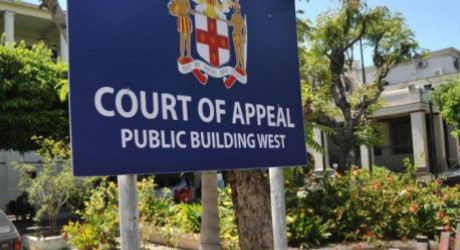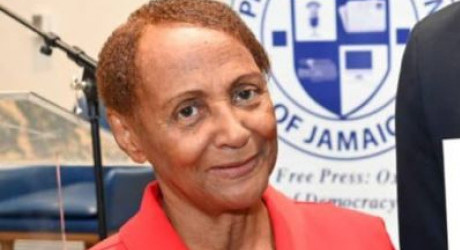.png)
Attorney at law Ian Wilkinson is strongly opposing the establishment of a Jamaica based final court of appeal, instead of becoming part of the appellate jurisdiction of the Caribbean Court of Justice (CCJ).
Senator Alexander Williams, Opposition Spokesman on Justice & Justice System Reform, confirmed last week that the Jamaica Labour Party (JLP) was no longer interested in Jamaica joining the appellate division of the CCJ as a replacement for the UK based Privy Council as the country’s final court of appeal.
The arguments in favour of that position have been described by P.J Patterson, former Prime Minister of Jamaica, as “weak, tenuous and unconvincing” and Wilkinson is also deeply concerned.
Retrograde step
Appearing on “That’s a Rap,” RJR’s weekly news review programme, on Sunday, Wilkinson, President of the Jamaican Bar Association, described the JLP’s new position as “a retrograde step.”
He stressed that “members of academia senior jurists” had studied similar proposals over the years and had ultimately rejected such moves.
Furthermore, he said, “many of the judges with whom I’ve spoken, not just in the Supreme Court, but in the Court of Appeal… do not agree with it.”
Untenable
Describing the process of establishing a separate final court in Jamaica as “untenable,” Wilkinson said it would take “a very long time” and was a costly and unnecessary undertaking.
Jamaica had already contributed a significant sum of money to the creation and maintenance of the CCJ, he said, adding that it was not sensible to embark on a duplication of that expenditure for another court, which would have no advantage over the regional body.
With the CCJ by now “well established” and “well staffed”, he said it was time to resolve the differences in Jamaica over the matter and accede to the appellate division of that court.
Jamaica already subscribes to the original jurisdiction of the Port of Spain based CCJ, which handles matters arising from interpretations of the Revised Treaty of Chaguaramas. It was that chamber of the court which last year heard the path breaking Shanique Myrie case and delivered a judgment which clarified the rules relating to intra-regional travel.
Two-step approach
Wilkinson also disagrees with Patterson’s recommendation that Jamaica should approach the matter of leaving the Privy Council and joining the CCJ’s appellate division, in two steps. This would result in the country being without a third tier appellate court for at least a period, pending the completion of the process of joining the CCJ.
According to Mr. Wilkinson, it would be too risky to enter a period of “judicial purgatory” while awaiting the completion of that process.
A decade ago, Jamaica attempted to leave the UK based Privy Council and accede to the CCJ as its final court of appeal, in addition to the original jurisdiction.
In 2005, the Privy Council rejected the approach that had been adopted by the Government of Jamaica to establish the CCJ as the country’s final court of appeal.
In the subsequent years the two parties have failed to find consensus on the matter.









 All feeds
All feeds







